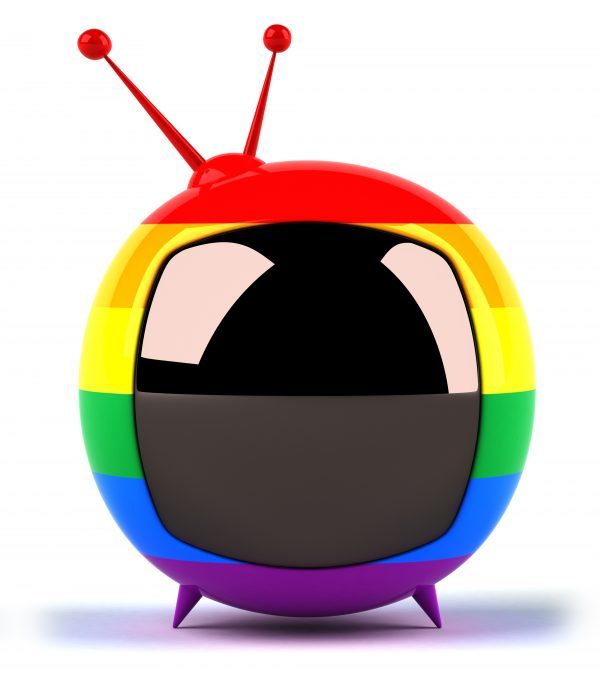
The Nineteen-Eighties. It was literally a different era.
Cable television was just catching on. Home computers were almost prohibitively expensive. “Google” was a misspelling of a Ukrainian writer.
There were hardly any openly gay regular characters on T. V. Steven Carrington on “Dynasty,” and Jodie Dallas on “Soap” in the early 80s and that was about it. The intervening decades brought us “Will and Grace,” “Tales of the City” and the real and fictional versions of “Ellen.”
And somehow the Waters Brothers and their friends have gotten lost in the shuffle and in the dim and musty years.
In the Summer of Nineteen-Eighty-Four Showtime premiered cable’s first original sitcom; “Brothers,” introducing viewers to the blue collar Waters Brothers. Joe and Lou who had raised their younger brother, the now twenty-something Cliff, after their parents died years before. The jock gene runs through the family and Joe is a former pro football kicker who runs a sports bar in Philadelphia. The three brothers are different in opinions and attitudes but are very close.
And in the pilot episode, Cliff shocks his siblings by announcing he can’t go through with a planned wedding because he’s gay. What follows in the episode is a very funny version of the by now cliche coming-out story as older brothers Joe and Lou struggle with this revelation.
Joe asks Cliff if he could have waited to break this news.
“Until when?” Cliff asks.
“Until everyone we know is dead,” Joe replies.
Cliff and his brothers are, after all, brothers and they try to understand as best they can, Cliff winds up still sharing an apartment with divorced Joe and working at his sports bar “The Point After,” where a lot of the series’ action is set.
The contrast to straight-acting Cliff is his flamboyant best friend Donald (Phillip Charles McKenzie, now better known as a director.) Donald gets the best lines, usually clashing with boorish brother Lou. For all their conflict, the two have a grudging respect and Donald even goes looking for family man Lou when he goes missing.
DONALD: “I’ve been to Lou-land! Bars and lodges. I have spoken to more pot bellied men than any homosexual should ever have to!”
While Lou’s bigotry and malaprops are highly reminiscent of Archie Bunker, Donald is usually more than a match for him.
LOU: (At a wedding Donald is officiating at) “Looky who we got here, Saint Francis a sissy.”
DONALD: “Lou, at the reception we’re all going to bob for your brain.”
It is inevitably Donald and Lou who get the most laughs from the studio audience which had a group of gay regulars in attendance.
The show was generally lighter in tone than the Norman Lear shows, and plot lines over the show’s five seasons besides the usual sitcom confusion dealt generally with relationships but they did tackle serious issues of Gay-bashing and of course AIDS in 1985. This was back when T. V . evangelists were largely praising the “gay plague” and spreading misinformation.
(In an eerie irony, in one episode Cliff gets a tryout for a professional baseball team; actor Paul Regina bore a surprising resemblance to the later out pro ballplayer Billy Bean.)
Where this show would be cast today with gay actors playing the gay characters, the cast in the eighties was straight. Paul Regina as Cliff, Brandon Maggart as Lou, Robert Walden (best known for “Lou Grant”) as Joe, Hallie Todd as Joe’s daughter Penny and Robin Riker as Kelly, the waitress at The Point After. (Keep an eye out for occasional appearances by future “Simpsons” star Yeardley Smith as Lou’s daughter Louella.)
According to one story, “Brothers” was originally commissioned by one of the broadcast networks to cash in on the popularity of the play “La Cage Aux Folles,” but the network wanted a gay show without any gays in it. In another, the show was created (by David Lloyd, Greg Antonacci and Gary Nardino) in the early 1980s to explore family relationships in light of the family going through a major change. Either way the subject of gay characters was too controversial for the broadcast networks of the time. Hence, “Brothers” went to cable. It was syndicated for a while but hasn’t been seen much in recent decades. (episodes can be found on You Tube, where probably the first three seasons are the best.)
A DVD release or at least showings on cable would be well worth it.
Jeff Baker’s fiction has appeared in the premier issue of the online magazine “Orion’s Beau” (as by Mike Mayak) among other places. His non-fiction has been posted to the Lambda Literary and Amazing Stories sites. He blogs about reading and writing sci-fi, fantasy and horror around the thirteenth of each month in this same space. He lives happily with his husband Darryl, and they both have known real-life versions of Cliff, Joe, Lou and Donald.. Jeff regularly posts fiction on his blog https://authorjeffbaker.com/ and wastes time on Facebook at (3) Jeff Baker, Author | Facebook


